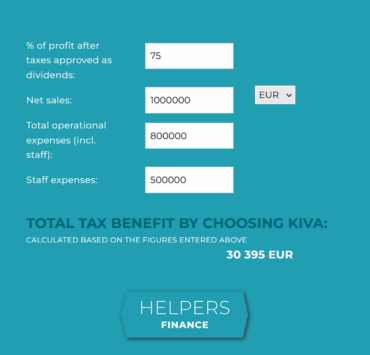Accounting for the climate crisis

Management accounting
While accounting is mostly about keeping a company’s books in order, accountants’ tasks also involve creating reports and projections. Most of these are required by law for review by the tax authority, but they are also tools in the hand of managers, and in some cases, investors or other stakeholders for making more conscious decisions. When we consider accounting as providing financial insight for a decision-making process of managers, we talk about management accounting.
Since accounting has ties with various functions within an organization, it is in an excellent position for being involved in cross functional bodies that govern sustainability processes. The most important tools in the accountants’ hands that can benefit any organization are the following:
1. Cost-benefit analysis
Many sustainability projects start out as cost reduction. Schemes are often driven by rising energy prices, but reducing the use of any other resource can benefit the company financially. Accountants who have an insight on potential cost savings while also understand revenue generation can spot opportunities for savings.
Cost-benefit analyses can involve factors relevant for sustainability goals, such as the current and projected carbon footprint of the organization. Seeing possible savings can be an incentive towards implementing more environmental friendly procedures.
2. Investment appraisal
Through investment appraisal, accountants can showcase the long-term pay-offs for making environmentally conscious investments. However, they may need to reconsider their investment review processes to involve the carbon footprint, carbon regulations, and energy efficient technologies and procedures.
3. Value based management
Accountants have all the tools for measuring value, whether it is value at risk or value to be gained. With the right reports, they can demonstrate the value of certain “drivers” for climate change actions, through which they can push the agenda of climate protection.
These drivers include:
- Regulation (incentives and penalties)
- Cost of resources
- Consumer behavior (reflecting environmental concerns and expectations)
- Technological advances
4. Change management
Not only can accountants quantify the possible benefits of change, they can also follow up with possible methodologies and approaches. They can help senior management understand the economic consequences of proposed policy. In turn, this will enable the management to engage with all stakeholders in an informed way, and even participate in regulatory policy discussions.
5. External reporting
Reporting is not only relevant for the management and the authorities, but also for possible investors, analysts, and other stakeholders. These days many companies are required to periodically publish sustainability reports about their operation, indicating several aspects relevant for reaching climate protection goals. These reports can make action taken so far appear more tangible, which can be an incentive for the adoption of further measures while making the organization more attractive.
Accounting for the mitigation of the climate crisis
Precise and timely accounting data provides the basis for the reporting that is the foundation of a reliable decision support system. By including the sometimes severe impacts of climate change into not just forecasts, but also current valuations and reports, accountants can challenge old procedures, and help you find solutions that will benefit your organization.
The low hanging fruits include energy and waste measurement and management, reporting, benchmarking, and improving employee engagement. Since climate change is not the future but the present, taking such measures has an impact on the value of the company’s assets and thus its financial situation.
Let us help you
Helpers Finance provides an outsourced accounting solution for small and medium sized companies in Hungary. As described above, the data and analysis coming from precise work and thorough reporting can help your business face the challenges of the climate crisis. Contact us today and let us discuss how your company can benefit from our services. Call our office on +36 1 215 0712, send an email to info@helpersfinance.hu, or simply fill in our contact form.
Did you like this article? Then follow us on Facebook, and get notified of the next one.
The post Accounting for the climate crisis appeared first on Helpers Finance.


